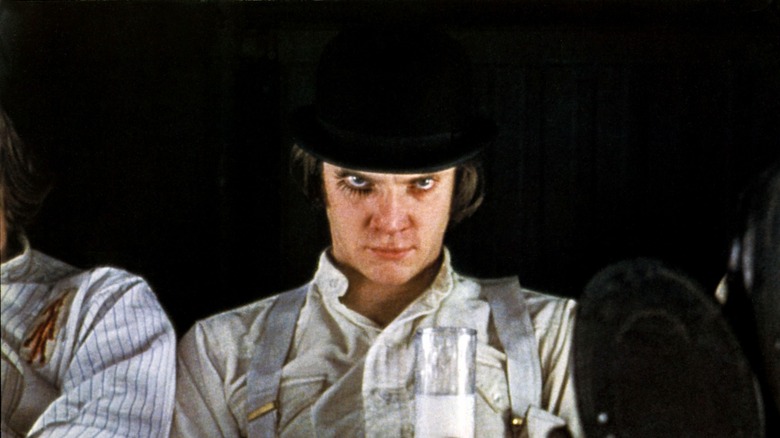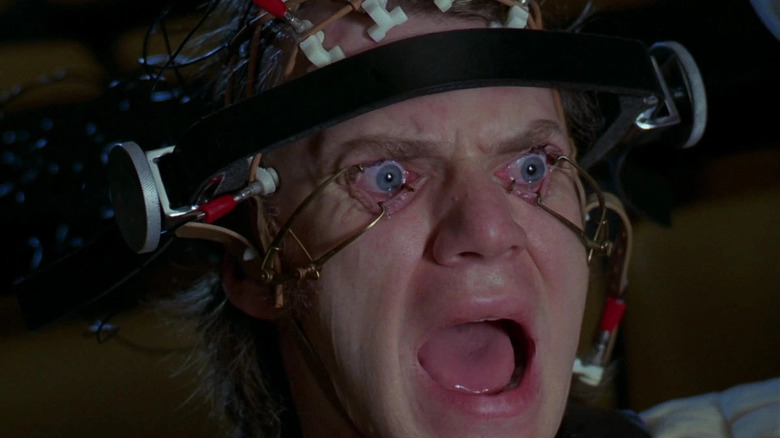Two Brief Moments Came Together To Create The Concept For A Clockwork Orange
Before "A Clockwork Orange" was a visually stimulating, textually fascinating dystopian crime film by Stanley Kubrick, it was a nearly puzzling novel by Anthony Burgess published in 1962. It's such a unique story (with an even more unique invented slang dialect, to boot) that it's hard to fathom exactly how it must've come about in the author's mind, but the birth of "A Clockwork Orange" came from two places, one more simplistic-seeming than the last.
The film's star, Malcolm McDowell, previously spoke about the origins of the original story in the movie's Blu-ray commentary. He said:
"He told me, Burgess, [...] that he got the idea for this film from being in Moscow in the early 60s in a coffee shop. The windows were all steamed up and he was sitting by the window talking to one of his compatriots and these thugs would press their faces up to the window. He was obviously a foreigner because he was dressed differently and it was obviously threatening. And that's what kicked off the spark of 'A Clockwork Orange.'"
Violence is a cornerstone of the film's themes and how they manifest in the world, so it makes sense that the threat of violence would incite a creative spark for Burgess to create the ultraviolent world we've come to be familiar with through the Kubrick film. That said, it wasn't the only element of the film that had to come from some outside source. After all, the title is too strange to just be plucked from the recesses of Burgess' mind.
Ultraviolence and A Clockwork Orange
The writer decided to title the novel "A Clockwork Orange" after having heard an aging cockney man say that someone was "queer as a clockwork orange" in an effort to describe his insanity, according to AFI. The author also noted reasons as to why he felt man was similar to an orange, and thus why the title fit: "a fruit, capable of color, fragrance and sweetness; to meddle with him, condition him, is to turn him into a mechanical creation."
Burgess wasn't far off with his choice; it's a great steal from a catchy adage that does, in fact, mean what he hopes it will, especially by the given definition. Plus, Burgess' story takes Alex, the main character or orange, if you will, and turns him "into a mechanical creation" in the film's second half. That is the core of how the Ludovico Technique rears its ugly head in Alex's direction. He is one of the only people, if not the only one, who has participated in the experimental treatment and is quite alone in his experience — forcing him into being someone regimented by force, someone conditioned, like Burgess said. While the meanings aren't always surface level, it's clear the author's intentions for "A Clockwork Orange" were strong — and they certainly bled into Kubrick's impressive and important adaptation.

